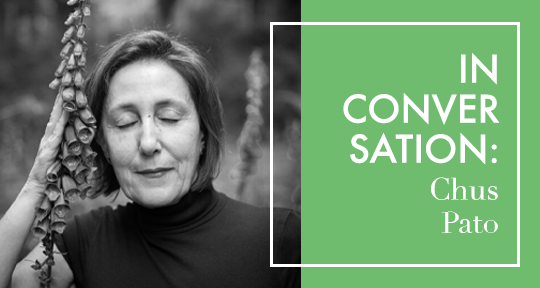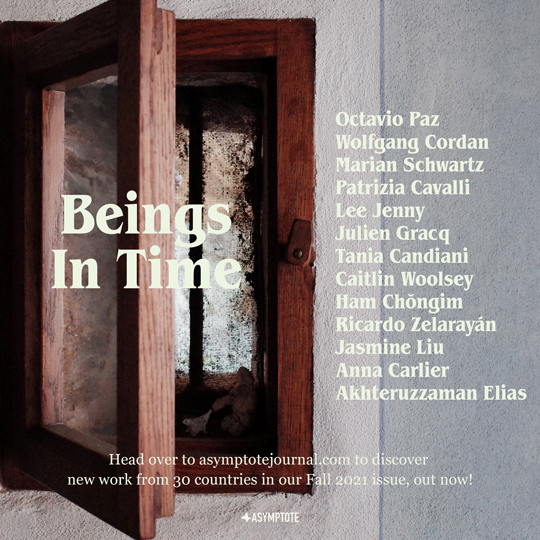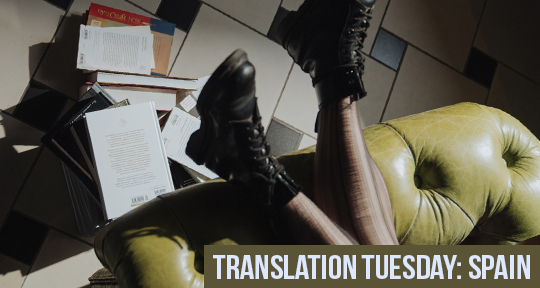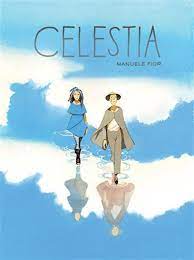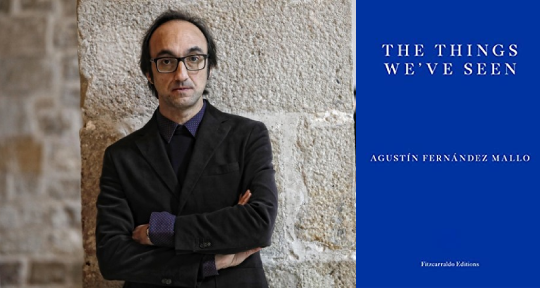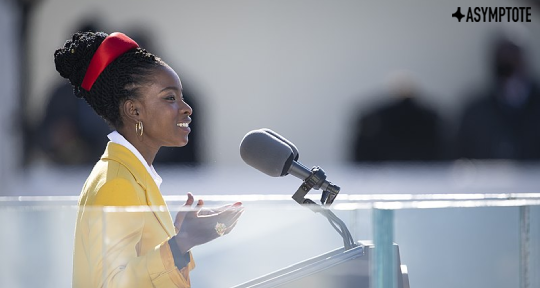Chus Pato is one of Europe’s most significant contemporary poets. She lives in Galicia, in Northwest Spain, and writes in Galician, a language that over time has weathered censorship, dictatorship, colonialist policies, and administrative neglect, all aimed at impeding its survival. Here, she converses with Erín Moure, Canadian poet and her translator into English for twenty years, on the occasion of the 2021 Poesiefestival Berlin. They discuss the current situation of Galician, the ways that poetry allows us to think out or rethink our relation to politics, the language of the poem and its difference from the language of consensus, and her current explorations into articulated language and human action in her work-in-progress, Sonora, from which she read in Berlin.
The original Galician conversation and German translation by Burghard Baltrusch are available; the interview has been translated into English by Moure with permission from Poesiefestival Berlin. Chus Pato’s most recent book in English, The Face of the Quartzes, appeared in Erín Moure’s translation from Veliz Books in fall 2021.
Erín Moure (EM): We’ve often discussed your choice to write poetry in Galician and how it is a political decision, a demand for justice for the language of your people—a language prohibited under Francoism—as well as a resistance to the political undermining of Galician and subtle promotion of a single and compulsory language, that of the unitary state of Spain, which we in English call “Spanish.” What I’d like to point out is that on the other side of the Atlantic, for your audience that is not Galician and that reads you in English translation, Galician is not a minor or defective tongue but simply a European language, and you a European poet. How do you see your role as poet, in Galicia, in Spain, in Europe, and now in the city of Berlin, a European capital of poetry as well as meeting point of the west and the east of Europe?
Chus Pato (CP): I think that in Galicia and in general I am well known enough as a poet and am read by the community of those interested in poetry. I know many loyal readers read my books when they are published. This is what I most value. Even so, I still perceive resistance on the part of canonizing institutions that I think has to do with what these institutions see as the difficulties in reading what I write (hermeticism, experimentalism, etc.) and with issues related to my political stance, a position that coincides neither with the right that governs us nor with majority nationalism.
That my work is known at all in the Spanish state is due in great measure to the efforts of my publishers and translators, and my feeling is that they have been remarkably successful. I can’t really gauge how I am perceived elsewhere in Europe. I feel I’m read more on the American continents. In Europe, my gratitude goes to Frank Kaizer, my Dutch editor at De Vrije Uitgevers, for his efforts and courage, and also to the Rotterdam festival and its former director Bas Kwakman.
EM: How would you describe the current situation of the Galician language, both in cultural milieus—where Galician figures prominently—and in daily life?
CP: The situation of Galician is dramatic, really. The Council of Europe, in its recent report on the fifth evaluation of Spain’s implementation of the European Charter for Regional or Minority Languages, warns that only 23.9% of children in Galicia under the age of fifteen can express themselves in Galician.
Galician continues to suffer from a covert criminalization that has prevented generational transmission. The linguistic policies of the political party that systematically wins Galician elections are largely responsible for putting us in this extreme situation. Today, we can no longer say that Galician is strong in the private sphere, at least not in the case of younger generations.
We have to distinguish diverse political positions on linguistic diversity of the State: the Spanish right is always intolerant, and within the left there are degrees of tolerance. In the forty years that separate us from the end of the Franco dictatorship, we have not advanced much toward what is desirable, at least in my opinion.
What matters to me is what happens in Galicia, what the majority of Galicians think of their native language, and the reasons that lead them to turn away from it and not transmit it to their children as their mother tongue. These reasons have to do with the economic policies of the State, which has always viewed Galicia as a land from which to extract raw materials and labour. Two centuries of emigration and of the continual destruction of the values that constituted and still constitute us as distinct as Galicians largely explain the situation that faces us now.

